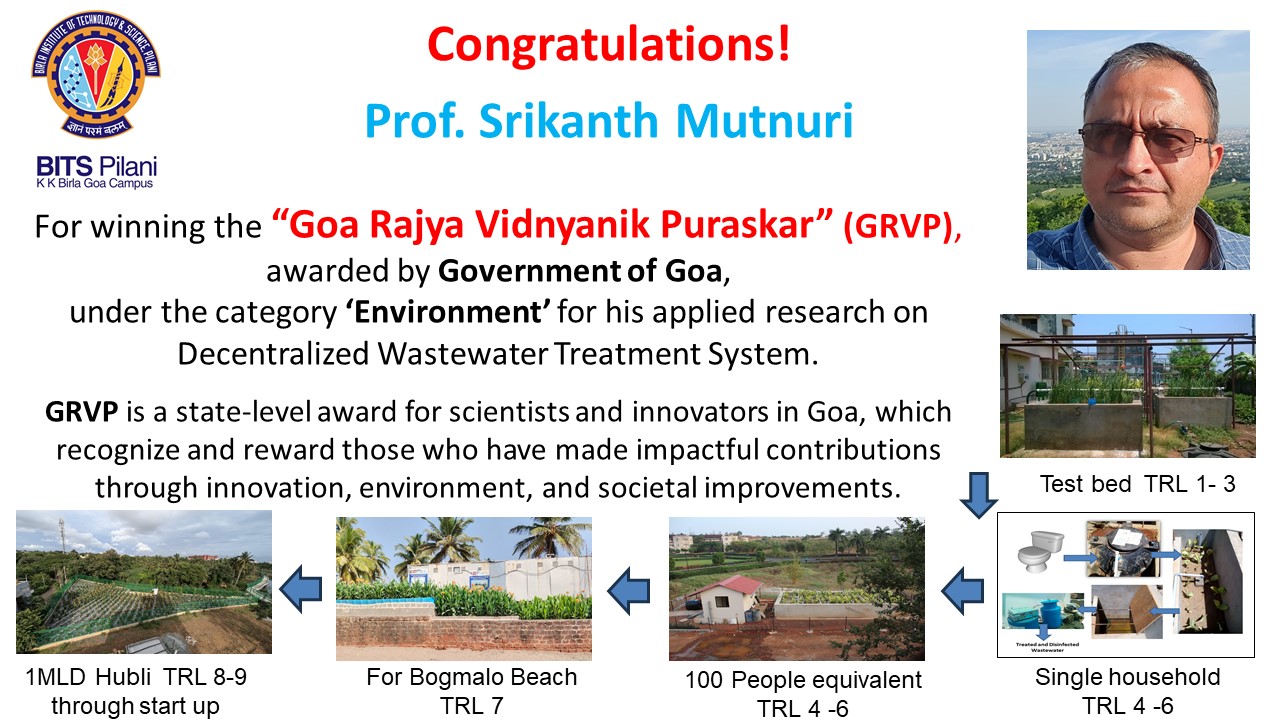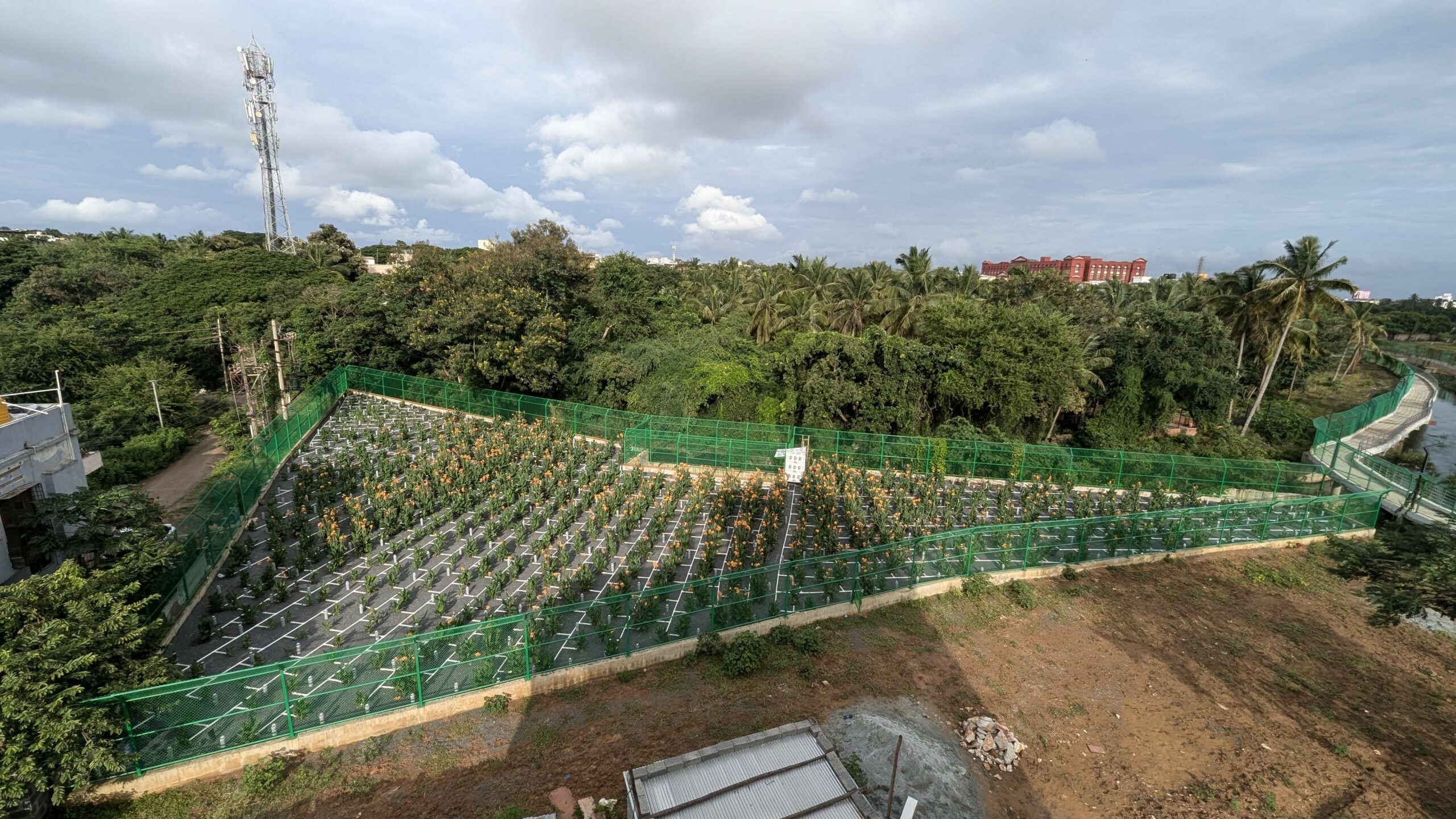Honoring Achievements in Decentralized Wastewater Treatment and Water Purification
In a remarkable recognition of his dedication and contributions to environmental sustainability, Prof. Srikanth Mutnuri, Department of Biological Sciences at BITS Pilani, K K Birla Goa Campus, has been awarded the prestigious Goa Rajya Vidnyanik Puraskar (GRVP). This esteemed state-level award honors scientists and innovators in Goa who have made significant impacts through their work in innovation, environment, and societal improvements. Prof. Mutnuri was awarded under the category "Environment" for his applied research on decentralized wastewater treatment systems.
Prof. Mutnuri's ground-breaking innovations, the vertical flow constructed wetlands (VFCW) and the electrochemical disinfection system, are pivotal in progressing towards Sustainable Development Goal 6 (Clean Water and Sanitation) and supporting the Swachh Bharat Mission. These forward-thinking technologies address the pressing need for sustainable and efficient water and wastewater management solutions.
The VFCW system is particularly notable for its low-cost and low-energy approach. By leveraging natural processes, the system utilizes soil, gravel, and vegetation as bio-filters to treat wastewater. This process effectively removes contaminants, pathogens, and nutrients, making the water safe for reuse or discharge. The VFCW system has proven to be especially beneficial in regions with limited access to conventional wastewater treatment facilities. Its scalability is evident through successful installations in individual households and a student hostel, showcasing its adaptability and environmental friendliness.
Complementing the VFCW system is Prof. Mutnuri's electrochemical disinfection system, a groundbreaking advancement in water purification technology. This innovative system generates disinfectants in situ through an electrochemical process, ensuring the effective elimination of pathogens and providing safe drinking water. The effectiveness of this system has been demonstrated in various public locations, including Bogmalo beach, Cujira school complex, Madgaon wholesale fish market, and an open Nallah in Hubli.
The achievements of Prof. Srikanth Mutnuri stand as a testament to the importance of sustainable and innovative solutions in addressing global and local environmental challenges. His contributions not only advance scientific knowledge and technology but also enhance the quality of life and health of communities. Congratulations to Prof. Mutnuri for his well-deserved recognition and continued efforts in environmental research and development.
The commercialization potential of the vertical flow constructed wetlands (VFCW) and the electrochemical disinfection system is significant. These innovations are technologically advanced, sustainable, and economically viable, making them attractive to both private and public sectors.
Vertical Flow Constructed Wetlands
The VFCW system's low-cost, low-energy approach to wastewater treatment makes it commercially viable for various applications, from residential to industrial. Its scalability and reliance on natural processes for contaminant removal reduce operational costs, appealing to municipalities, environmental organizations, and private developers.
Electrochemical Disinfection System
This system offers a decentralized solution for ensuring safe drinking water. Generating disinfectants in situ through an electrochemical process eliminates the need for chemical storage, reducing logistical challenges and costs. Its effectiveness in public locations, such as schools and markets, showcases its versatility.


















